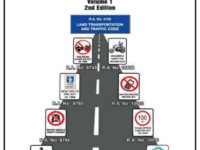- Which morphological classification is characteristic of megaloblastic anemia?
A. Normocytic, normochromic
B. Microcytic, normochromic
C. Macrocytic, hypochromic
D. Macrocytic, normochromic
Hematology/Correlate clinical and laboratory data/Microscopic morphology/RBCs/2 - Which anemia is characterized by lack of intrinsic factor that prevents B12 absorption?
A. Tropical sprue
B. Transcobalamin deficiency
C. Blind loop syndrome
D. Pernicious anemia
Hematology/Evaluate laboratory data to recognize health and disease states/2 - All of the following are characteristics of megaloblastic anemia except:
A. Pancytopenia
B. Elevated reticulocyte count
C. Hypersegmented neutrophils
D. Macrocytic erythrocyte indices
Hematology/Correlate clinical and laboratory data/Anemia/Megaloblastic/2 - A patient with a vitamin B12 anemia is prescribed a high dosage of folate. Which of the
following is expected as a result of this treatment?
A. An improvement in neurological problems
B. An improvement in hematological abnormalities
C. No expected improvement
D. Toxicity of the liver and kidneys
Hematology/Select course of action/Anemia/Therapy/3 - Which of the following disorders is associated with ineffective erythropoiesis?
A. G6PD deficiency
B. Liver disease
C. Hgb C disease
D. Megaloblastic anemia
Hematology/Evaluate laboratory data to recognize health and disease states/RBC
physiology/2 - A 50-year-old patient is suffering from pernicious anemia. Which of the following
laboratory data are most likely for this patient?
A. RBC = 2.5 × 1012/L; WBC = 12,500/μL (12.5 × 109/L); PLT = 250,000/μL (250 × 109/L)
B. RBC = 4.5 × 1012/L; WBC = 6,500/μL (6.5 × 109/L); PLT = 150,000/μL (150 × 109/L)
C. RBC = 3.0 × 1012/L; WBC = 5,000/μL (5.0 × 109/L); PLT = 750,000/μL (750 × 109/L)
D. RBC = 2.5 × 1012/L; WBC = 2,500/μL (2.5 × 109/L); PLT = 50,000/μL (50 × 109/L)
Hematology/Correlate clinical and laboratory data/Anemias/2 - Which of the following may be seen in the peripheral blood smear from a patient with
obstructive liver disease?
A. Schistocytes
B. Macrocytes
C. Howell–Jolly bodies
D. Microcytes
Hematology/Apply principles of basic laboratory procedures/Microscopic morphology/2 - The macrocytes typically seen in megaloblastic processes are:
A. Crescent shaped
B. Teardrop shaped
C. Oval shaped
D. Pencil shaped
Hematology/Apply principles of basic laboratory procedures/Microscopic
morphology/Differentials/2 - Which of the following are most characteristic of the RBC indices associated with
megaloblastic anemias?
A. MCV 99 fL, MCH 28 pg, MCHC 31%
B. MCV 62 fL, MCH 27 pg, MCHC 30%
C. MCV 125 fL, MCH 36 pg, MCHC 34%
D. MCV 78 fL, MCH 23 pg, MCHC 30%
Hematology/Correlate clinical and laboratory data/Megaloblastic anemia/2 - A patient has 80 NRBCs per 100 leukocytes. In addition to increased polychromasia on
the peripheral blood smear, what other finding may be present on the CBC?
A. Increased PLTs
B. Increased MCV
C. Increased Hct
D. Increased RBC count
Hematology/Correlate clinical and laboratory data/Megaloblastic anemia/2
Answers key
- D Megaloblastic anemia is macrocytic normochromic because there is no defect in Hgb
synthesis. These anemias comprise a group of asynchronized anemias characterized by
defective nuclear maturation resulting from defective DNA synthesis. This abnormality
accounts for the megaloblastic features in bone marrow and macrocytosis in peripheral
blood. - D Pernicious anemia is caused by lack of intrinsic factor, which prevents vitamin B12
absorption. - B Megaloblastic anemias are associated with ineffective erythropoiesis and, therefore, a
decrease in the reticulocyte count. - B Administration of folic acid to a patient with vitamin B12 deficiency will correct the
hematological abnormalities, but the neurological problems will persist. This helps
confirm the correct diagnosis of vitamin B12 deficiency. - D Ineffective erythropoiesis is caused by destruction of erythroid precursor cells prior to
their release from bone marrow. Pernicious anemia results from defective DNA
synthesis; it is suggested that the asynchronous development of RBCs renders them
more prone to intramedullary destruction. - D Patients with pernicious anemia demonstrate pancytopenia with low WBC, PLT, and
RBC counts. Because this is a megaloblastic process and a DNA maturation defect, all
cell lines are affected. In bone marrow, this results in abnormally large precursor cells,
maturation asynchrony, hyperplasia of all cell lines, and a low M:E ratio. - B Patients with obstructive liver disease may have macrocytes on their peripheral blood
smear because of an increased tendency toward deposition of lipid on the surface of
RBCs. Consequently, the RBCs are larger or more macrocytic than normal RBCs. - C Macrocytes in true megaloblastic conditions are oval, as opposed to the round shape of
macrocytes usually seen in alcoholism and obstructive liver disease. - C The RBC indices in a patient with megaloblastic anemia are macrocytic and
normochromic. The macrocytosis is prominent, with MCV ranging from 100 to 130
fL. - B The patient will have increased MCV. One of the causes of a macrocytic anemia that
is not megaloblastic is increased reticulocyte count, here noted as increased
polychromasia. Reticulocytes are polychromatic macrocytes; therefore, MCV is
slightly increased.









0 Comments